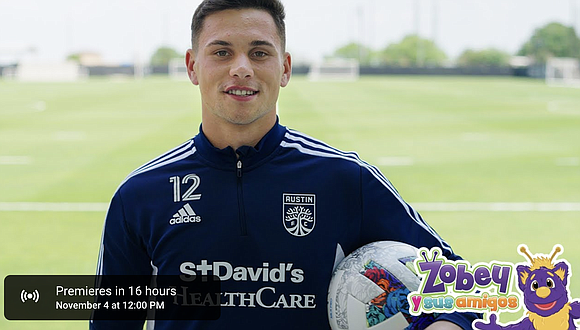HHSC Launches Dedicated Spanish-Language Healthy Texas Kids Channel on YouTube
Style Magazine Newswire | 11/3/2022, 7:17 p.m.
The Texas Health and Human Services Commission is launching Niños Sanos de Texas (Healthy Texas Kids), a new YouTube channel for Spanish-speaking children. The made-for-kids videos include topics like improving nutrition, physical health, and boosting physical activity.
Developed by the Texas WIC program, Niños Sanos de Texas includes videos of fun dances and indoor and outdoor activities, featuring Zobey, a friendly purple puppet who loves to dance and play with friends. Previously, the Spanish language videos were combined with the English language videos on Healthy Texas Kids YouTube channel. Separating the channels into English and Spanish will make the content easier for parents and kids to find.
“We are super excited for the launch of the Niños Sanos de Texas YouTube Channel,” said Amanda Hovis, director of Nutrition Education and Clinical Services for Texas WIC. “It’s packed full of videos focused on getting kids up and active while also learning about healthy habits and nutrition. This channel expands access to healthy children’s programming and brings Zobey and friends to more families in Texas.”
Zobey and friends latest video will help kids learn the proper way to brush their teeth by using a two-minute-long song. Families can also go on a fun active adventure to Super Hero Training Camp, the Locomotion Lab, find a rainbow of fruits and veggies or even visit outer space.
Launching this Friday, families can learn more about being active and playing soccer with Austin FC goalkeeper, Damian Las.
On Niños Sanos de Texas, parents and caregivers will find a variety of safe and useful videos for their kids to watch on their own or view together as a family. Videos vary in length and theme and are meant to both entertain and educate children ages 8 years and younger.







